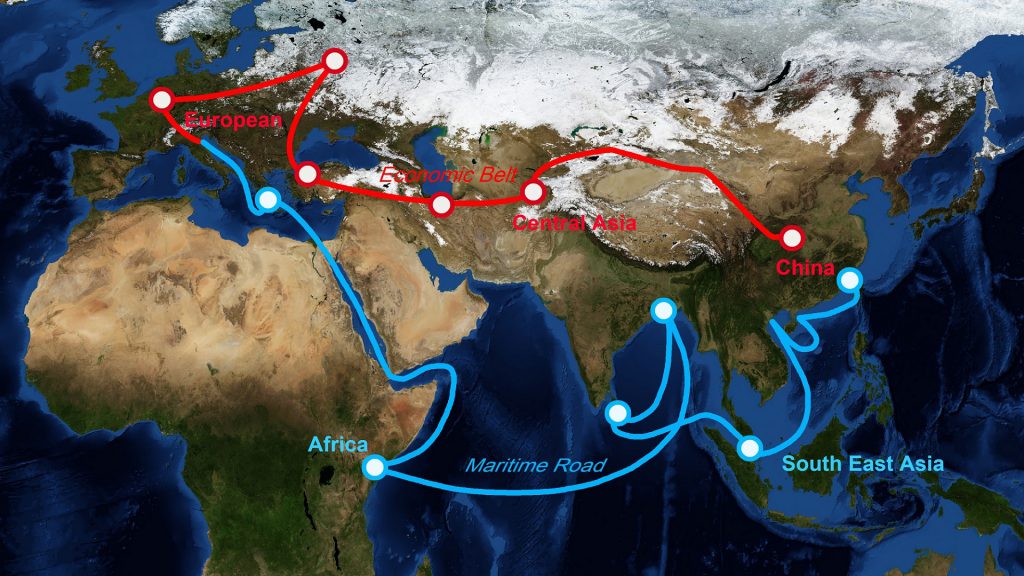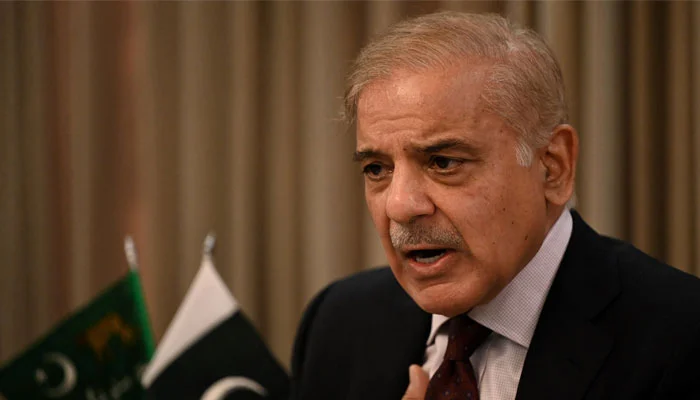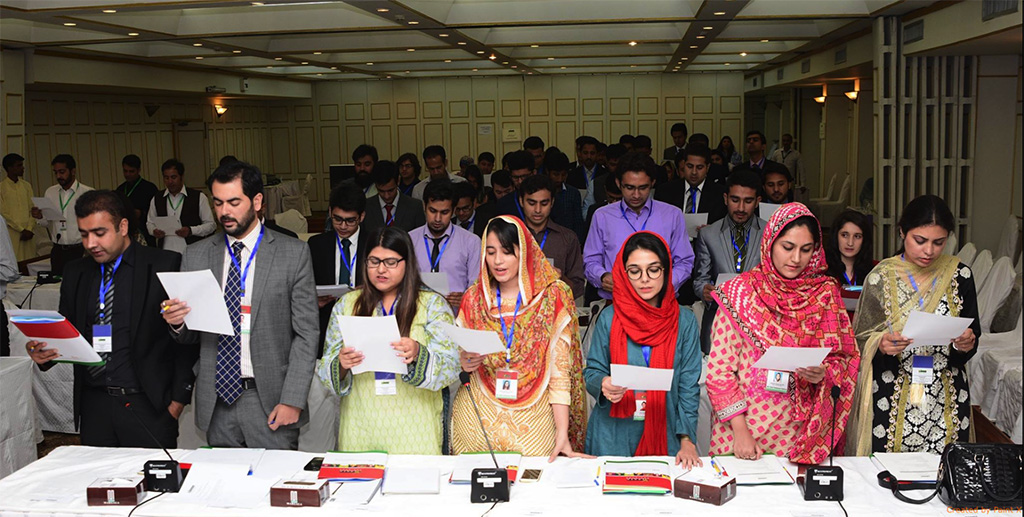By: Saher Liaqat

Encrypting President Xi Jinping’s key visions of win-win cooperation and a community with a shared future in the historic China-Arab Summit and the China-Gulf Cooperation Council Summit held in early December last year, in Riyadh, the People’s Republic of China and Gulf states embarked on new level of strategic partnership. These summits, attended by 10 Arab leaders, are considered a landmark in the history of Sino-Arab relations, paving the way towards an era of a more promising future of sustainable cooperation, consolidated solidarity, and enhanced economic development.
The Arab states and China, historically connected by the ancient Silk Road, find an excellent opportunity in Belt and Road Initiative to enhance cultural engagements, bolster trade and innovation and ensure all-inclusive peace and development. According to Xi’s vision, BRI will help translate these aims by creating a stronger China-Arab community with a shared future. The multilateral rendezvous via BRI is acclaimed as a game changer, as the whole Gulf region will benefit from it.
Since the unveiling of BRI in 2013, Sino-Gulf cooperation has grown tremendously. The bilateral relations between the PRC and the Gulf States fit in the tutelage of cooperation priorities of China’s Belt and Road Initiative, i.e., unrestricted trade, financial integration, connectivity of facilities, increased people-to-people linkages, and policy coordination. The strategic aim of BRI is to augment infrastructural and logistical networks while promoting investment and commerce, facilitate energy supply, integrate hydrogen supply chains, and engage local capacity in renewable energy. This engagement structure is at par with China’s “Economic Diplomacy” approach focusing on expanding trade and economic ties with its partners without political interference.
The “Geoeconomics Approach” of China with the GCC states rests upon the pillar of economic interdependence. China, the world’s largest energy consumer, has remained GCC’s largest export market of petrochemical products, including liquified natural gas (LNG) and crude oil. PRC has been actively strengthening its ties with the six member countries of the GCC. The economies of Saudi Arabia, Kuwait, and Oman depend highly on their oil exports to China. Simultaneously, China has remained dependent on the Gulf countries for its energy security, and Saudi Arabia alone accounted for 17.4 percent of its crude oil imports to China in 2021.
Sino-Gulf trade experienced an upward trend from $10bn in 2000 to more than $230 billion in 2021. Chinese fossil fuel imports from Saudi Arabia, Oman, and the UAE touched $44.9 billion, $25.4 billion, and $21.3 billion, respectively. Besides energy, GCC states provide China with a huge market for Chinese goods, investment opportunities in infrastructure, digital economies and manufacturing, and construction contracts. The Gulf region is increasingly becoming China’s most preferable trade destination outside the Asia-Pacific. Under the region’s technology and infrastructure push, its economic ties have been anchored to fit Beijing’s Belt and Road Initiative.
Conversely, GCC wants the foreign direct investment inflows in the region to not only gratify the local demand but also integrate these local economies into global supply chains, for which these recent summits offer the best opportunity for them. Moreover, the Gulf countries, including Saudi Arabia and UAE, intend to reduce their dependence solely on oil by making new industries that will help generate more employment opportunities for the locals. They are investing in emerging technologies as a vital pillar of economic diversification to take a shift away from fossil fuels. Therefore, for a post-oil era, the Gulf states are increasingly looking towards the East for economic diversification at home. China, an Asian economic giant, is their most sustainable option, and BRI stimulates this interaction.
Given the dynamic international and regional situation, the overarching significance of the strategic engagement of Gulf states with China is becoming more evident. In this regard, China-Saudi relations have also entered a new era of economic interdependency. China’s Belt and Road Initiative fully complements Saudi Arabia’s 2030 Vision and offers a high-level cooperation framework in areas such as economy, trade, energy, and security concerns in the Middle East, enhanced cooperation in regional and international affairs, and strengthens the China-Saudi Arabia inclusive strategic partnership.
Additionally, according to Saudi state media, China and Saudi Arabia signed deals valued at around US$30 billion. An agreement signed over Huawei Technologies is expected to bring data centers, cloud computing, and high-tech complexes to Saudi cities. Saudi Arabia has been the largest recipient of Chinese BRI investment in the Gulf region, which amounted to US$5.5 billion worth of deals, manifesting Beijing’s long-term ambitions and commitments in the Middle East while detaining from investment in other countries due to geopolitical concerns.
Following the announcement of BRI, Saudi Arabia has also shown a pattern of sustained growth over the years, with the Chinese FDI inflows and investments in the country averaging US$654 million in 2019. Kuwait also considers BRI cooperation with China as a supplement to its 2035 Vision of Development. Likewise, other Gulf economies, inspired by China’s miracle, have fully trusted Chinese leadership for socioeconomic development and shared progress.
President Xi Jinping, during the China-GCC summit, emphasized joint action from GCC states to advance cooperation in the areas of innovation and technologies by bolstering cooperation in 5G and 6G communication, big data, Artificial Intelligence (AI), satellite and aerospace, and promoting start-up businesses in other high-tech sectors. Twenty Arab states signed documents on BRI cooperation with PRC, 15 became members of the Asian Infrastructure Investment Bank, and 17 supported China’s Global Development Initiative (GDI). Moreover, 17 cooperation mechanisms were unleashed to corroborate this agenda.
In line with the BRI cooperation, the Gulf states extended their support for China’s Global Development Initiative (GDI) to improve their independent development capability, induce socioeconomic progress, and achieve the UN 2030 Agenda for Sustainable Development. Moreover, they view China’s Global Security Initiative (GSI) as a proactive initiative to address the security dilemma of the Middle East to promote peace and security in the region in the long run.
The BRI holds significant potential for boosting China-Gulf cooperation and mutual learning, bringing more benefits to the people on both sides. Due to China’s reputation as an essential and trusted Asian partner, more Arab countries are opening up to the opportunities China provides via BRI, adding a new trajectory to this incredible initiative. These opportunities will bring China-Arab and China-GCC relations to a new level, promoting joint development and security, bolstering future cooperation, and advancing dialogue among civilizations.
The writer works as a researcher with China-Pakistan Study Centre at the Institute of Strategic Studies Islamabad. She also writes for different media outlets in Pakistan. She can be reached at saherliaqat2000@gmail.com



